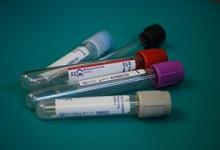Problems with Biologic Drug Storage Save

Is your patient’s refrigerator the problem with the inefficacy of biologic therapies?
Biologics agents as adalimumab, golimumab and ustekinumab should be stored at a temperature of 2–8°C. Several studies have identified a prevalent problem of unacceptable refrigeration storage of biologics used to treat immune mediated inflammatory disorders such as rheumatoid arthritis, psoriasis and inflammatory bowel disease.
de Jong and colleagues from the Netherlands studied 50 patients receiving golimumab packaged with a temperature sensor that recorded sample temperature every 5 minutes. Patients were told to store their medication as usual. Temperature deviations were defined as any duration below 0°C and >30 minutes below 2°C or above 8°C.
After 3 months, data from 276 injectors and nearly 2.5 million temperature assessments showed that only one in eight (11.6%) were stored within the recommended temperature range. In addition, 11.2% were stored >30 minutes below 0°C and 33.2% were stored > 1 week above 8°C. The authors suggested these findings may affect drug effectiveness in IMID-patients.
In 2016 Vlieland et al performed a similar observational study of Dutch patients given biologics with a temperature sensor. A majority (87.0%) of patients returned their temperature recordings to the pharmacy.
Only 6.7% stored their biologic within the recommended temperature range. Over 24% were guilty of storing their drug for more than 2 hours below 0°C (median duration 3.7 h) and 2% stored drug at temperatures above 25°C (median duration 11.8 h). (Citation source: https://buff.ly/2DoDQ34)
An editorial by Rentsch et al in the Journal of Gasteroenterology and Hepatology points out that none of these investigators studied the clinical impact of these missteps in drug storage. (Citation source https://buff.ly/2rsxkGU)
Thus it is unknown if the efficacy, viability, bioavailability or even the immunogenicity of these agents would be altered under these temperature variations. Changes in the complex protein structure of biologics may result from freeze–thawing or prolonged storage at elevated temperatures and may lead to denaturation, irreversible formation of protein aggregates and loss of biological activity.
Recommendations:
- Store biologics at 2-8 ºC; when taken out of the refrigerator should be kept at room temperature less than 25ºC
- Studies have shown that etanercept may be safely stored at room temperature conditions of 25°C±2°C (77°F) for up to 1 month https://t.co/HMf7pcVudE
- I advise patients who are traveling to either: A) take their biologic a few days earlier or later to avoid traveling with drug; or B) if they travel with a biologic they keep it cool, dark and dry. Remove from the refrigerator, wrap the injectable syringe in bubble wrap or light insulation (no need for an ice chest or dry ice), put it in a purse or briefcase and bring the box label. The syringe is safe on planes & hotels as long as they are at room temperature, away from sunlight or heat. http://rheumnow.com/blog/tips-arthritis-travelers-best-2015-3
- Discard drugs that have been frozen or improperly storage (call pharmacy or manufacturer for a replacement)
- Pharmacists and nurses must counsel patients on the importance of storage conditions
- There are companies developing apps to monitor drug temperature and usability. https://buff.ly/2rsHJ5v
- Manufacturers should develop and incorporate temperature-sensitive warning devices that can be incorporated into packaging.
- Tell patients to avoid storing Biologics in lower CRISPER Drawers, were the temperature is always lower (usually below 2°C or below 36° F). The lower temperature in the Crisper is optimal for storing produce and meats.










If you are a health practitioner, you may Login/Register to comment.
Due to the nature of these comment forums, only health practitioners are allowed to comment at this time.